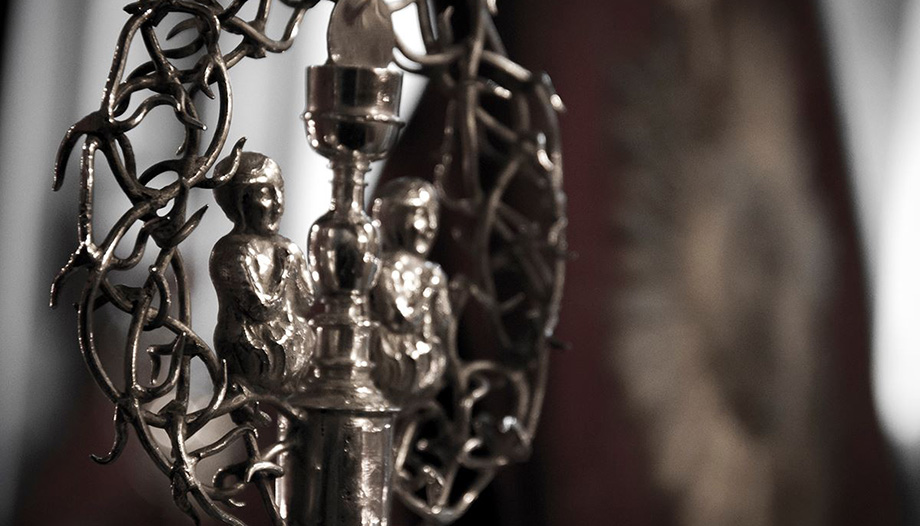Testo originale del articolo in inglese qui
Man is social by nature, which means that he needs others in order to develop not only physically, but in an integral way. The first area of socialization is the family. In the family the child discovers himself as a person different from the others, he feels loved among the mother's arms, which embrace him. He also feels safe, when his father wants to throw him in the water, he rides also because he knows that his father will not fail, he will always catch him. This is how he begins to build his legs with the colors that are closest to him.
Fraternity is another area of socialization, based not only on a shared faith, but also on the manifestations of popular religiosity, which reaches its peak during Holy Week.
It is very important to maintain and deepen those external forms of religiosity, so diverse according to geography, which allow us to share our roots with others in order to grow together. We must take care of these traditions, both those simple and those decisive, because "love is simple and simple things are divorced from time" as Chavela Vargas says.
In some places today, in the absence of their own customs, there is a tendency to import styles or modes of popular expression from other regions, which, when transferred, lose their meaning. This, however, does not seem to be a good idea.
But the popular religiosity is not solved exclusively in acts, in activities, original or important as they are.
In the play Faust, Goethe, its author, puts in the protagonist's mouth an affirmation that has elicited numerous comments: "in principle it was the action", or rather an act that has not begun and ended if not in itself, for this Faust would say that he does not seek happiness, but only wants to ensure his commitment to the dedication to the bike, to the activity, without hesitation. Any objective, that to which the action tends, must be excluded.
Even much earlier St. John had affirmed the opposite: "in principio era il Verbo", i.e. the Word, the Truth.
Jesus is the Eternal Word of God who, invited into the world, with his words and with his actions communicates to men the truth about God and about himself, thus presenting the unity between Truth, Goodness and Beauty, which leads man, through Christ, to the Father in the Holy Spirit, making him a part of the Trinity, in which the sociality of man culminates.
What has this to do with the fraternities?
Today there is much talk of a liquid society, a society without the strength of convictions, which assumes the criteria that are imposed on it without discussion, as does a liquid that always takes the form of the container that contains it. A container that is now configured by a radical anthropocentrism that, like Faust, tries to import the unconditional primacy of action.
In this situation, the confraternities must overcome the cycle of routine management, without searching for new challenges and new horizons. Otherwise, they could move towards the final action itself, without foundation or orientation to the Truth, favoring a popular religiosity that is not intended as a basis to achieve the Truth, the complete socialization, and to influence society, but that is self-absorbed,
Now it is not the case that the fraternities propose technological solutions for the resolution of social problems, nor impose systems, nor express partial preferences, but it is necessary that instead they proclaim moral principles, also related to the social order, besides giving criteria on any human issue, to the extent required by the fundamental rights of the human person. Social models are discussed in the field of anthropology. They do not build themselves through action, they are not the engine but the consequence.
That's why it is necessary to disarm ourselves intellectually and doctrinally. It is here that the fraternities achieve their raison d'être, to confront this challenge. In a political scenario as liquid as the one we live in, it is even more necessary to have a solid contractual model.
In synthesis: the functioning of the fraternities as an area of socialization, does not lie in the development of activities, which are only of the means.
And it is not a matter of encouraging the brother to adapt his existence to the fulfillment of some ethical commitment, but of providing him with the training and the means to make his action a person adapted to the Truth, alla Bontà e alla Bellezza, e quindi alla sua pienezza di persona come proposta di Karol Wojtyla in "Persona e atto" e poi di Benedetto XVI nell'enciclica "Fides et ratio".
D. in Business Administration. Director of the Instituto de Investigación Aplicada a la Pyme. Eldest Brother (2017-2020) of the Brotherhood of the Soledad de San Lorenzo, in Seville. He has published several books, monographs and articles on brotherhoods.








